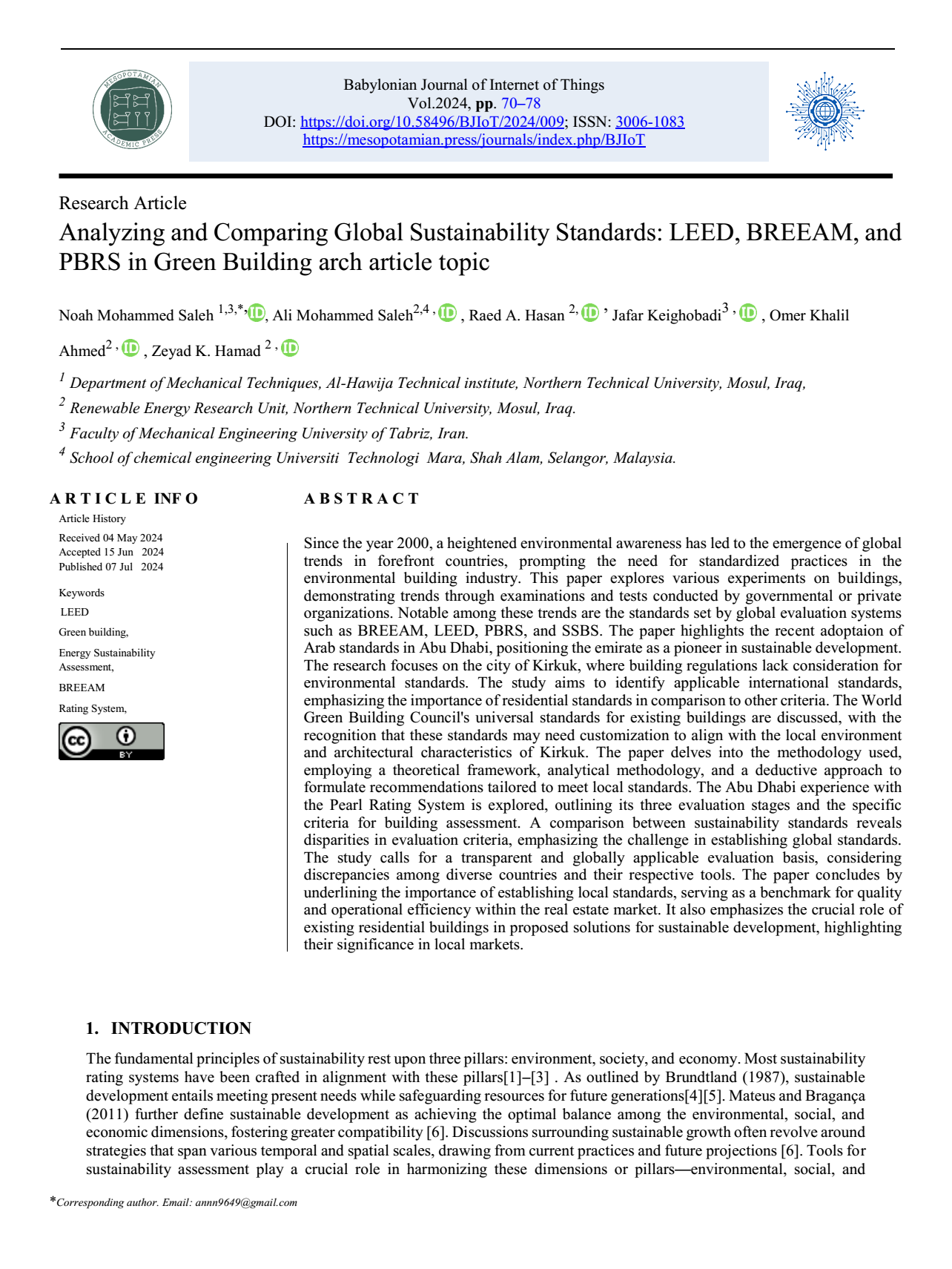Analyzing and Comparing Global Sustainability Standards: LEED, BREEAM, and PBRS in Green Building arch article topic
Main Article Content
Abstract
Since the year 2000, a heightened environmental awareness has led to the emergence of global trends in forefront countries, prompting the need for standardized practices in the environmental building industry. This paper explores various experiments on buildings, demonstrating trends through examinations and tests conducted by governmental or private organizations. Notable among these trends are the standards set by global evaluation systems such as BREEAM, LEED, PBRS, and SSBS. The paper highlights the recent adoptaion of Arab standards in Abu Dhabi, positioning the emirate as a pioneer in sustainable development. The research focuses on the city of Kirkuk, where building regulations lack consideration for environmental standards. The study aims to identify applicable international standards, emphasizing the importance of residential standards in comparison to other criteria. The World Green Building Council's universal standards for existing buildings are discussed, with the recognition that these standards may need customization to align with the local environment and architectural characteristics of Kirkuk. The paper delves into the methodology used, employing a theoretical framework, analytical methodology, and a deductive approach to formulate recommendations tailored to meet local standards. The Abu Dhabi experience with the Pearl Rating System is explored, outlining its three evaluation stages and the specific criteria for building assessment. A comparison between sustainability standards reveals disparities in evaluation criteria, emphasizing the challenge in establishing global standards. The study calls for a transparent and globally applicable evaluation basis, considering discrepancies among diverse countries and their respective tools. The paper concludes by underlining the importance of establishing local standards, serving as a benchmark for quality and operational efficiency within the real estate market. It also emphasizes the crucial role of existing residential buildings in proposed solutions for sustainable development, highlighting their significance in local markets.
Article Details
Issue
Section

This work is licensed under a Creative Commons Attribution 4.0 International License.
